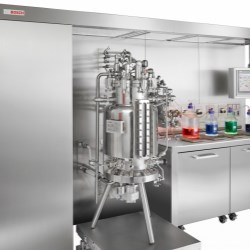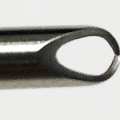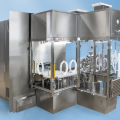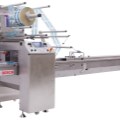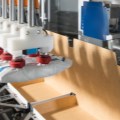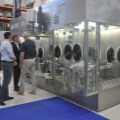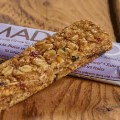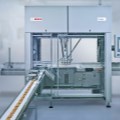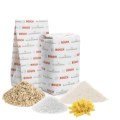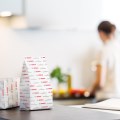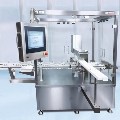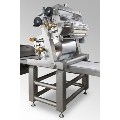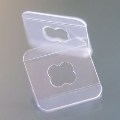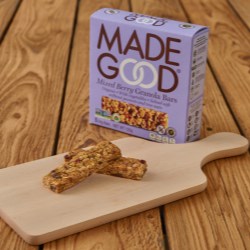Public
BOSCH Locations
News
If this is your company, CONTACT US to activate Packbase™ software to build your portal.


Bosch has launched a new pilot fermenter for the cultivation of active pharmaceutical ingredients (APIs) on laboratory and pilot scale. “In the pharmaceutical industry, the manufacture of complex compounds using biotechnological methods continues to grow in importance. Whether the desired substance is an insulin preparation or a medication for targeted cancer therapy – our bioprocessing systems deliver optimum product quality and excellent process results,” says Dr. John Medina, sales director at the Bosch subsidiary Pharmatec. “With the new pilot fermenter, Bosch has rolled out a modular, fully automatic system that is suitable for R&D applications, clinical studies in the lab, and industrial production of small batches.” The pilot fermenter was presented at interpack 2017 in Duesseldorf.
Modular process system for diverse cell cultures
When it comes to designing fermentation systems, the goal is to create optimal growing conditions for microorganisms such as cells and bacteria. At the same time, these systems have to meet the strict cGMP regulation standards for the pharmaceutical industry. Bosch’s highly versatile pilot fermenter satisfies the specific requirements for the production of APIs, and for a diverse range of applications.
“Thanks to its modular design, the bioreactor is well suited to various cultivation processes and cell cultures. Interchangeable mixing and dosing technologies ensure that the optimal fermentation process can be found to match the customers’ needs,” explains Medina. Depending on the selected mixer, the fermenter can process batch sizes from eight or 13 liters, up to 50 liters. In addition, reactor sizes for 100 and 200 liters are available for pilot and small industrial batches. Bosch has complemented its existing portfolio of fermentation devices, which had previously offered production volumes ranging from 500 to 5,000 liters.
Interchangeable mixing technologies
Depending on requirements, the system can be equipped with one of several interchangeable mixing elements, designed for different cell types and process controls. The mixer regulates the inflow of liquids or gases needed for cell cultivation. Sensitive cells require the use of gentler technologies like the air lift module, while more robust cells can be stirred mechanically.
The feeding of process media takes place fully automatically. As an alternative to the installed peristaltic pumps and two additional pumps in the periphery, at the show Bosch highlighted a separate module that offers high-precision dosing for liquid media with four syringe pumps. Further, the system periphery can be expanded to include additional peristaltic pumps, so that additional process fluids can be dosed.
Continuous process controls
Since the pilot fermenter is equipped with a gentle rotary pump and a second reactor vessel, it supports batch and fed-batch processes, as well as perfusion and continuous processing. Whereas the cell culture is essentially left to itself in batch processes, fed-batch processes continue to supply nutrient solutions during fermentation, resulting in higher cell density and product yield. In turn, perfusion is suited for the highest possible cell density: the fermenter is continuously supplied with fresh media, and equal amounts of waste media are extracted from the cultivation process by the system’s two hollow fiber modules.
In addition, the system is build as a package unit and the integrated wall allows the clear separation of technical section from operational area. The fermenter is designed for easy cleaning and sterilization (CIP/SIP). Its integrated periphery includes a steam generator, exhaust air cooler, and a heating/cooling device for the bioreactor. Depending on the task-specific requirements, up to four interchangeable process sensors are available. This concept enables quick installation at available spaces with limited media availability and quick changeover. Further, in terms of subsequent downstream processes and the formulation of the final injectable liquid, Bosch offers comprehensive solutions that can be seamlessly combined with other Bosch products for the filling and packaging of liquid pharmaceuticals.


